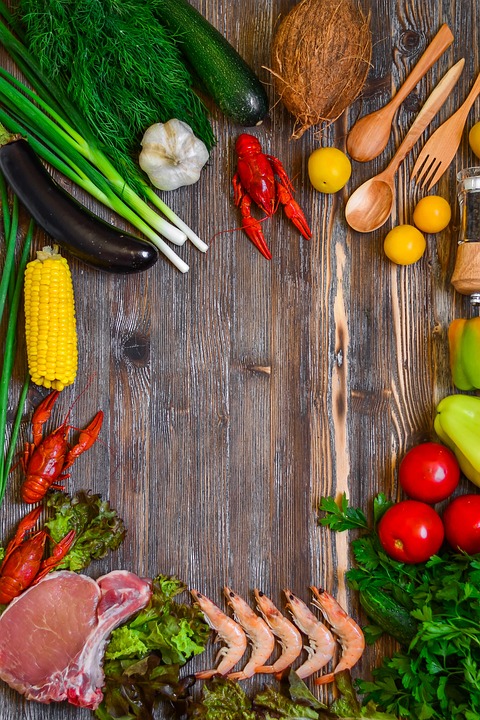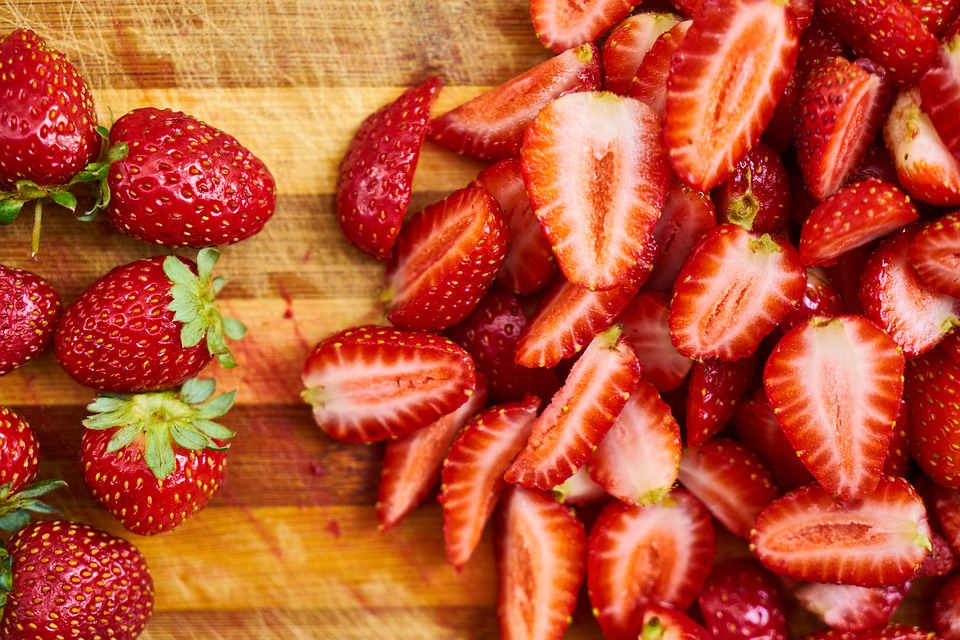Introduction: Understanding gastric sleeve Surgery
Gastric sleeve surgery, also known as sleeve gastrectomy, is a popular weight loss procedure that involves the removal of a large portion of the stomach. This surgical intervention aims to reduce the stomach’s size, resulting in a smaller appetite and a feeling of fullness with smaller meals. While this procedure offers significant benefits for individuals struggling with obesity, it also requires careful attention to post-operative dietary changes. In this article, we will explore the importance of calorie intake after gastric sleeve surgery and provide practical tips for managing this aspect of the recovery process.
1. Why Calorie Intake Matters After Gastric Sleeve Surgery
After undergoing gastric sleeve surgery, the reduced stomach size restricts the amount of food you can consume at once. Consequently, it becomes crucial to focus on the quality and quantity of the calories you consume. While the primary goal is weight loss, it is essential to strike a balance between reducing calorie intake for effective results and ensuring adequate nutrition to support your overall health. By understanding the significance of calorie intake, you can make informed decisions about your post-surgical diet.
2. Determining the Right Calorie Intake
Determining the appropriate calorie intake after gastric sleeve surgery can be challenging, as it varies from person to person. Factors such as age, sex, weight, activity level, and overall health play a role in establishing an individualized calorie goal. It is crucial to consult with your healthcare team, including a nutritionist or dietitian, to determine the right calorie intake for you. They will consider your specific needs and guide you in making dietary choices that align with your weight loss objectives and overall well-being.
3. Transitioning to a Post-Surgery Diet
Transitioning to a post-surgery diet is a gradual process that starts with clear liquids and gradually progresses to solid foods. Initially, you will need to focus on consuming small, frequent meals and chewing your food thoroughly to ensure proper digestion. As you advance through the diet stages, your healthcare team will recommend appropriate portion sizes and nutrient-dense food choices. It is essential to follow their guidance to avoid complications and achieve optimal results.
4. The Role of Macronutrients in Post-Surgical Calorie Intake
Macronutrients, including carbohydrates, proteins, and fats, play a vital role in post-surgical calorie intake. While it is important to reduce overall calorie intake, it is equally essential to ensure a balanced distribution of macronutrients to support your body’s needs. Protein is particularly crucial for wound healing and preserving muscle mass. Carbohydrates provide energy, while healthy fats contribute to satiety and the absorption of fat-soluble vitamins. Incorporating nutrient-dense foods that provide all three macronutrients is key to a well-rounded post-surgical diet.
5. Tips for Managing Calorie Intake After Gastric Sleeve Surgery
Managing calorie intake after gastric sleeve surgery requires careful planning and mindful eating habits. Here are some practical tips to help you navigate this aspect of your post-operative journey:
– Keep a food diary: Tracking your food intake can help you monitor your calorie consumption and identify any areas that need adjustment.
– Focus on nutrient-dense foods: Prioritize whole foods, such as fruits, vegetables, lean proteins, and whole grains, to ensure you are meeting your nutritional needs while keeping calories in check.
– Avoid empty calories: Minimize the intake of sugary beverages, processed snacks, and high-fat foods that provide little nutritional value and can hinder your weight loss progress.
– Practice portion control: Pay attention to portion sizes and use smaller plates and bowls to create the illusion of a fuller plate.
– Stay hydrated: Drinking enough water throughout the day can help control your appetite and prevent dehydration, which is crucial after gastric sleeve surgery.
In conclusion, managing calorie intake after gastric sleeve surgery is a critical aspect of the recovery process. By understanding the importance of calorie intake, determining the right amount for your specific needs, transitioning to a post-surgery diet, and incorporating macronutrients wisely, you can support your weight loss journey while maintaining optimal nutrition. With the guidance of your healthcare team and the implementation of practical tips, you can navigate this aspect of your post-operative experience successfully and achieve your desired outcomes.
Faqs About Gastric Sleeve Calorie Intake
What is Gastric Sleeve Calorie Intake and why is it important?
Gastric Sleeve Calorie Intake refers to the recommended amount of calories that individuals who have undergone gastric sleeve surgery should consume on a daily basis. This surgical procedure involves the removal of a portion of the stomach, resulting in a smaller stomach pouch. As a result, individuals experience a reduced appetite and capacity for food intake. Calorie intake is crucial after gastric sleeve surgery as it helps patients achieve and maintain a healthy weight while ensuring they receive the necessary nutrients for optimal health.
The three most important pieces of information about Gastric Sleeve Calorie Intake are:
1. It is essential to follow the recommended calorie intake after gastric sleeve surgery to achieve weight loss and maintain overall health.
2. Gastric sleeve surgery reduces the size of the stomach, leading to a decreased capacity for food intake.
3. Proper calorie intake ensures that patients receive adequate nutrients while promoting healthy weight loss.
How is Gastric Sleeve Calorie Intake determined?
Determining the appropriate Gastric Sleeve Calorie Intake varies depending on factors such as an individual’s age, gender, weight, height, activity level, and overall health. However, healthcare professionals typically calculate calorie intake based on a person’s basal metabolic rate (BMR) and their weight loss goals. BMR is the number of calories an individual’s body requires to maintain basic bodily functions at rest.
The three most important pieces of information about determining Gastric Sleeve Calorie Intake are:
1. Gastric Sleeve Calorie Intake is determined based on an individual’s age, gender, weight, height, activity level, and overall health.
2. Healthcare professionals calculate calorie intake using the person’s basal metabolic rate (BMR) as a starting point.
3. The calorie intake calculation also takes into account an individual’s weight loss goals.
What is the recommended Gastric Sleeve Calorie Intake after surgery?
The recommended Gastric Sleeve Calorie Intake after surgery varies depending on each individual’s specific needs and weight loss goals. Generally, healthcare professionals suggest consuming around 800-1200 calories per day during the initial stages of recovery and weight loss. As the body adjusts to the surgery and weight loss occurs, calorie intake may increase slightly to allow for continued progress while maintaining adequate nutrition.
The three most important pieces of information about the recommended Gastric Sleeve Calorie Intake after surgery are:
1. The recommended calorie intake after gastric sleeve surgery typically ranges from 800-1200 calories per day.
2. Calorie intake may slightly increase as the body adjusts to the surgery and weight loss occurs.
3. The specific calorie intake should be determined by a healthcare professional based on an individual’s needs and weight loss goals.
What types of foods should be included in Gastric Sleeve Calorie Intake?
After gastric sleeve surgery, it is essential to focus on consuming nutrient-dense foods that provide adequate vitamins, minerals, and proteins while keeping calorie intake in check. A well-balanced diet should include lean proteins, such as poultry, fish, and tofu, along with a variety of fruits and vegetables. Whole grains, low-fat dairy products, and healthy fats should also be incorporated into the diet to ensure proper nutrition.
The three most important pieces of information about the types of foods to include in Gastric Sleeve Calorie Intake are:
1. Nutrient-dense foods rich in vitamins, minerals, and proteins should be prioritized in the diet after gastric sleeve surgery.
2. Lean proteins, such as poultry, fish, and tofu, are important for muscle maintenance and repair.
3. A well-balanced diet should also include a variety of fruits, vegetables, whole grains, low-fat dairy products, and healthy fats.
Are there any guidelines for portion sizes in Gastric Sleeve Calorie Intake?
Yes, portion control is crucial when determining Gastric Sleeve Calorie Intake. After gastric sleeve surgery, the stomach’s reduced size means that patients can only consume small amounts of food at a time. It is recommended to eat small, frequent meals throughout the day and focus on eating slowly to allow the body to feel satisfied. Following portion control guidelines set by healthcare professionals helps patients avoid overeating and ensures they receive adequate nutrition.
The three most important pieces of information about portion sizes in Gastric Sleeve Calorie Intake are:
1. Portion control is crucial after gastric sleeve surgery due to the reduced stomach size.
2. Eating small, frequent meals throughout the day helps patients feel satisfied and avoid overeating.
3. Healthcare professionals provide specific portion control guidelines based on individual needs and weight loss goals.
1. Consuming more calories leads to weight gain after gastric sleeve surgery
One common Misconception about gastric sleeve calorie intake is that individuals who undergo the surgery can consume more calories without experiencing weight gain. However, this is not entirely true. While gastric sleeve surgery reduces the stomach size, it does not eliminate the body’s ability to absorb calories from food. Therefore, consuming excessive calories can still lead to weight gain, albeit at a slower rate compared to before the surgery.
2. Calorie intake after gastric sleeve surgery is unrestricted
Another misconception is that individuals who have undergone gastric sleeve surgery can consume an unlimited amount of calories without any consequences. This is not accurate. After the surgery, the stomach’s capacity is significantly reduced, and consuming excessive calories can still lead to discomfort, stretching of the stomach, or even complications. It is essential for individuals to maintain a balanced and controlled calorie intake to achieve and sustain weight loss.
3. A low-calorie diet is unnecessary after gastric sleeve surgery
Some people believe that after gastric sleeve surgery, there is no need to follow a low-calorie diet as the surgery itself will ensure weight loss. However, this is a misconception. While the surgery helps in reducing appetite and portion sizes, following a low-calorie diet is crucial to achieving significant and sustained weight loss. Consuming nutrient-dense, low-calorie foods helps individuals meet their nutritional needs while still promoting weight loss and overall health.
4. Calorie intake after gastric sleeve surgery remains the same as before
It is a common misconception that individuals who have undergone gastric sleeve surgery can continue consuming the same number of calories as they did before the procedure. This is not accurate. Following the surgery, the stomach’s capacity is significantly reduced, and the body’s energy needs may change. Therefore, it is important for individuals to work closely with healthcare professionals to determine an appropriate calorie intake that supports weight loss while meeting nutritional requirements.
5. Increasing calorie intake will accelerate weight loss after gastric sleeve surgery
Some individuals mistakenly believe that increasing their calorie intake after gastric sleeve surgery will speed up their weight loss progress. However, this is a misconception that can be detrimental to their health and weight loss goals. The surgery itself is designed to restrict the stomach’s capacity, and increasing calorie intake can lead to stretching of the stomach, discomfort, and potential complications. It is crucial to follow healthcare professionals’ guidance regarding a balanced and controlled calorie intake to ensure optimal weight loss outcomes.
These misconceptions highlight the importance of understanding the role of calorie intake in achieving and maintaining weight loss after gastric sleeve surgery. It is crucial for individuals to work closely with healthcare professionals to develop a personalized nutrition plan that supports their specific needs and goals. By debunking these misconceptions, individuals can make informed decisions about their calorie intake and improve their chances of successful weight loss after gastric sleeve surgery.
Gastric Sleeve Calorie Intake
#recommended #calorie #intake #undergone #gastric #sleeve #surgery #varies #depending #factors #age #gender #weight #activity #level #general #recommended #consume #calories #day #weeks #surgery #calorie #intake #helps #promote #weight #loss #stomach #heal #properly

